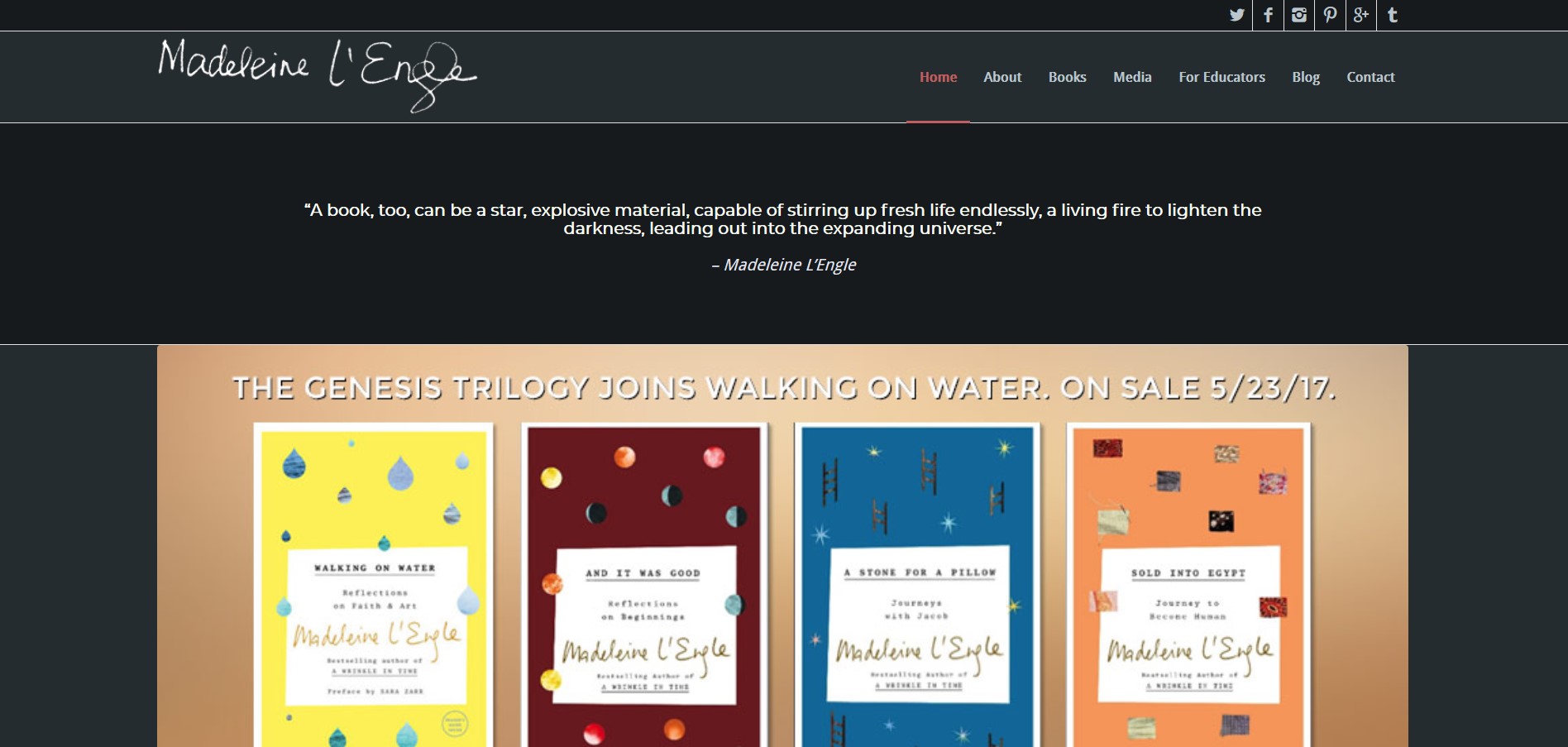
Getting Your Blog Started and Using it as the First Step in Building Your Author Platform
By Jamie Evans
Starting a blog can be intimidating, but only before you’ve made your first post. I was nervous to start a blog on my own, and so thankful to have a class that walked me through it. Even in a room of tech-savvy college students, people were a little confused at first. It took a while to get everything running, but once it was, blogging became something I really enjoyed. I started posting pretty frequently because I had something to say. Blogging has improved my writing and made me more comfortable with my own voice.
Your author platform consists of any social media you are a part of (Twitter, Tumblr, Instagram, Facebook), but really comes to a head on your author website. Here, you share the work you’ve done, show your professional contact, bio, and headshot. This is also where you’ll be sharing your blog posts. The website provides a simple format for your blog posts, which are another piece of your author platform as you share what you are writing with your readership.
 Wordpress presents a pretty simple format to start your website, and once you get past all the nitty gritty (finding images and a good-looking format, etc), it’s simple to just get down to it. It gives you a space for bragging rights to show off your work and shows potential clients and readers what you’re really like. Your website will also be where you present your blog posts. Beyond your own marketing, it’d be helpful to look up some blogs and types of posts to get an idea of what an average blog looks like. This will also help take away the mystery of it all since you’ll see what people produce and how simple it really is.
Wordpress presents a pretty simple format to start your website, and once you get past all the nitty gritty (finding images and a good-looking format, etc), it’s simple to just get down to it. It gives you a space for bragging rights to show off your work and shows potential clients and readers what you’re really like. Your website will also be where you present your blog posts. Beyond your own marketing, it’d be helpful to look up some blogs and types of posts to get an idea of what an average blog looks like. This will also help take away the mystery of it all since you’ll see what people produce and how simple it really is.
One of the first things to think about when starting a website is the title itself. You may see some that aren’t as direct, like “The Londoner”, “A Girl a Style”, or “Candy Pop”, and others that are simply the name of the blogger. It may be daunting to build an internet presence around your own name, but as an author that’s exactly what you’re trying to do. Because you’re an author, this website is more than a blog. The first things people should know when they land on your website are your name and that you’re a writer. After this, they should be able to easily find your bio and author picture, as well as look through your blog posts to put a face and life to that name. This will help to create your personal brand, too.
Brand is a pretty scary word, but it doesn’t have to be. It’s simple to start formatting yourself in your own brand because it is is what you like and who you are. The best way to start thinking about it is to think about three words that define you and your work, or styles that you’re drawn too – maybe that’s clean, clear, and simple or maybe it’s artsy, natural, and colorful. While you’re looking at some of your favorite people, writing, formats, images, and marketing on the internet, think about what you like and jot it down. It can form your brand and website.
If you’re interested in starting a blog, it’s definitely best to be guided through it. My workshop will give the basics in a free format that’s easy to use and will help spread word of your work. By the time you leave, you’ll be ready to run your blog on your own with help from a list of resources. Blogs always show up on the never-ending list of what writers need to be successful. If blogging is the future of writers, the earlier you get started, the better.
If you are attending my workshop, it’d be a good idea to have your headshot, bio, website name, and professional email all ready to go. I look forward to seeing you there!
.jpg) Jamie Evans grew up in the small town of Conway, NH, and finds most of her creative influence from nature. She’s known she wanted to be a writer since third grade where she wrote fantasy stories with talking animals and edited others’ papers. She continues editing at Champlain College. Her work has been published in Chivomengro and has seen a more serious turn in her dialogue-driven fiction.
Jamie Evans grew up in the small town of Conway, NH, and finds most of her creative influence from nature. She’s known she wanted to be a writer since third grade where she wrote fantasy stories with talking animals and edited others’ papers. She continues editing at Champlain College. Her work has been published in Chivomengro and has seen a more serious turn in her dialogue-driven fiction.
